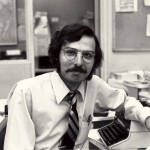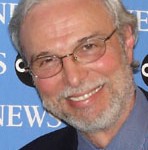
Remembering Mistuh Nathaniel Aschkynazo
November 18, 1926 – April 6, 2022
…from the WNEW1130.com archives, with our thanks to Alan Walden.

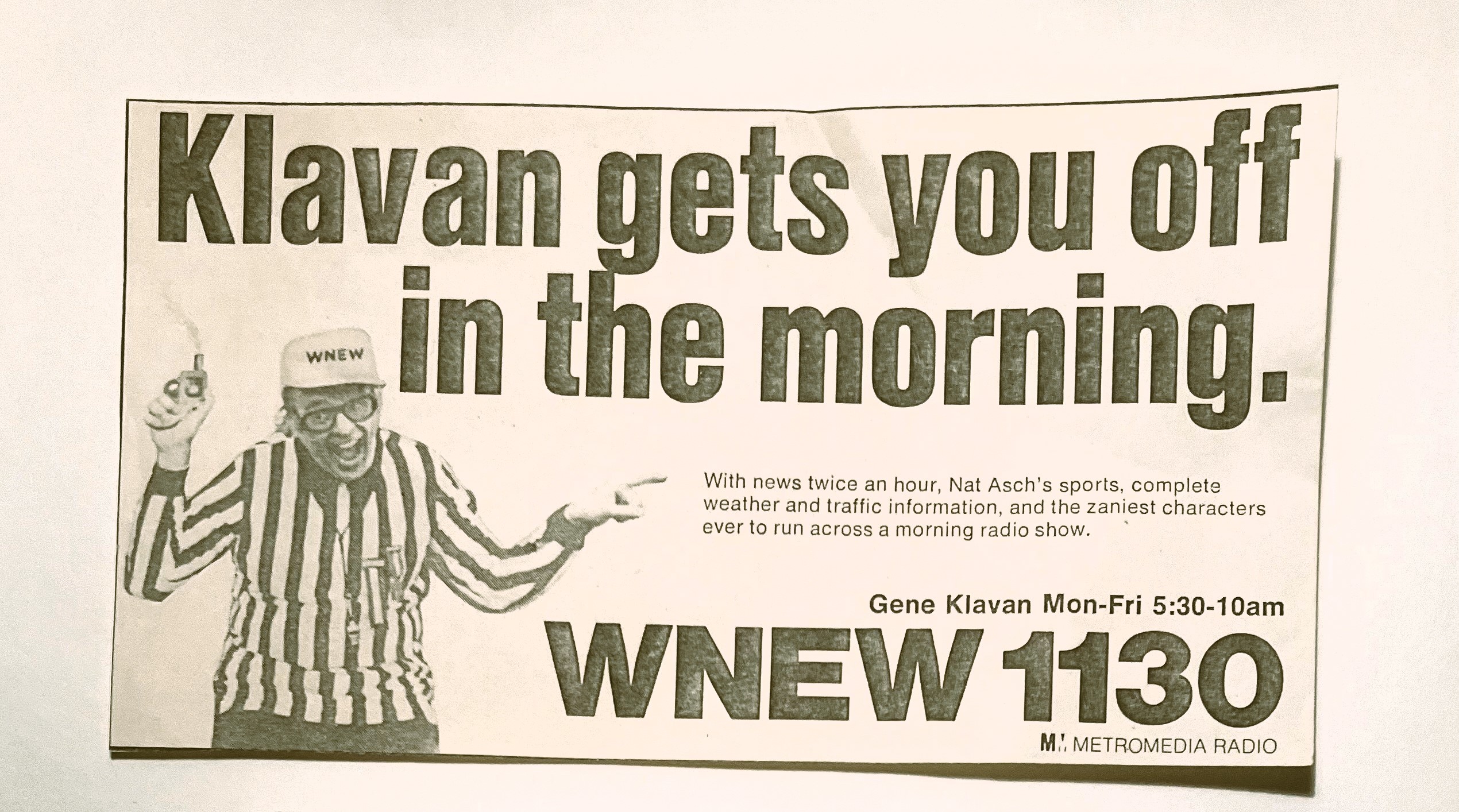 From the archives of Stuart Zuckerman.
From the archives of Stuart Zuckerman.
Promotion Manager WNEW-AM mid-’70’s
Contributing Editor, Andy Fisher
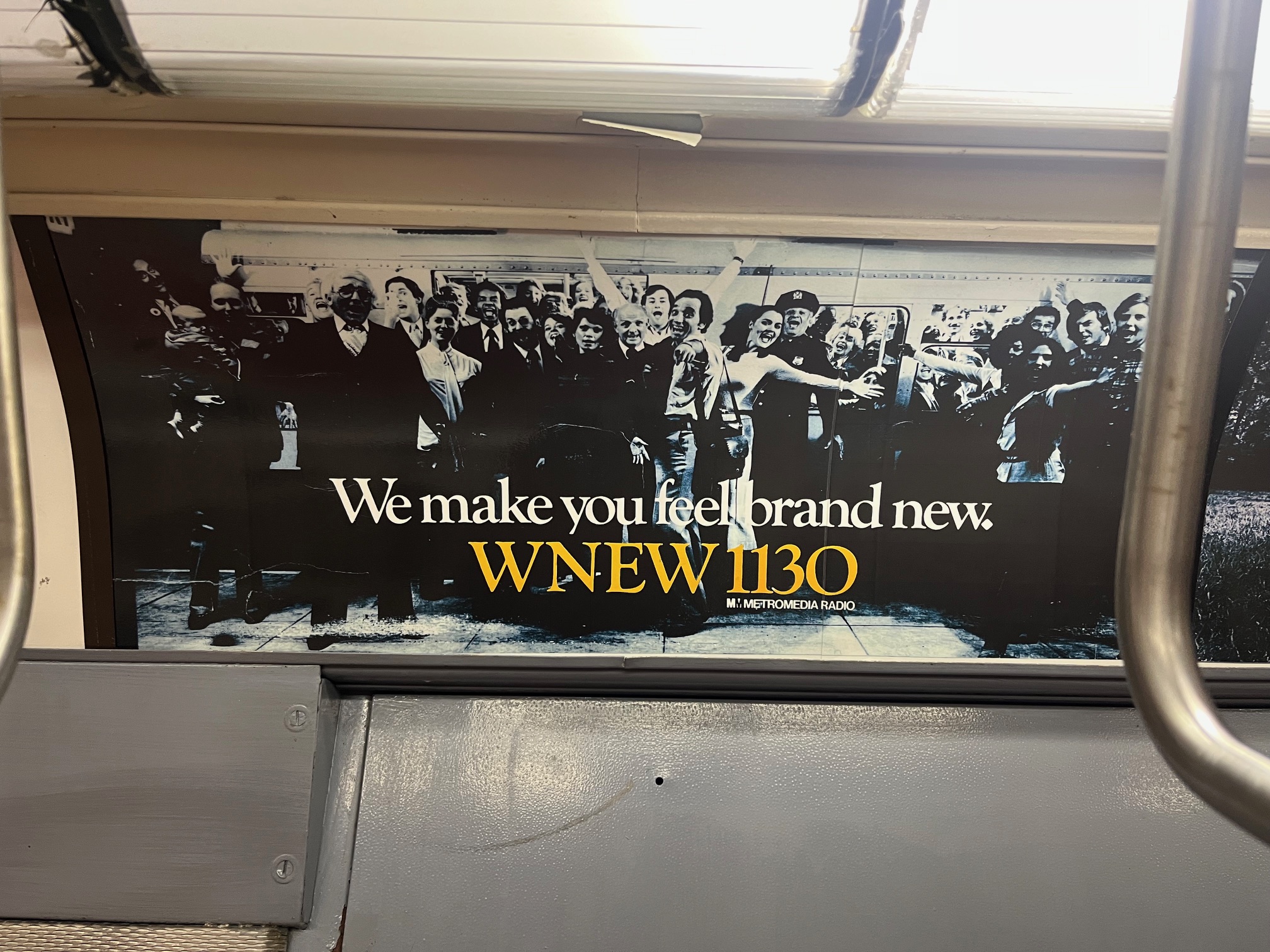
New York Transit Museum. Photo Credit: Bernie Wagenblast
Audio PlayerYour Metromedia Station in New York
-MCP-
Postedit: In response to your comment, Mike Moss, here is a Julius La Rosa special, You make me Feel so Young
Audio PlayerThe following is an excerpt from an article in the WSJ. –MCP-
By Chris Kornelis
March 7, 2025 10:00 am ET
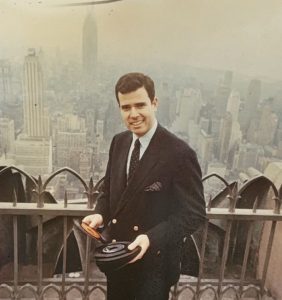
In May of 1967, Gary Stevens told his listeners that he’d gotten his hands on new music from the Beatles that none of them had heard yet. This is what his listeners tuned in for. Decades before the internet, social media, Napster, Spotify and MTV, radio was where you first heard new releases from the Rolling Stones, the Supremes and the Righteous Brothers.
Stevens was one of the WMCA “Good Guys,” the New York station’s roster of DJs at the height of the British Invasion and the halcyon days of Motown. The Beatles had already released “Penny Lane” and “Strawberry Fields Forever” earlier in the year, but Stevens didn’t just have a new single. He had an entire album: “Sgt. Pepper’s Lonely Hearts Club Band.” He claimed that his sidekick—a bear named Wooly Burger—had smuggled it out of England.
“People were not just tuning in to hear music and call letters and news, they tuned in for a friend, a familiar voice that made you feel good,” said Bruce Morrow, aka “Cousin Brucie,” who competed directly against Stevens in the night slot at WABC, where he still hosts a show He added: “If you were successful, you knew the secret: how to talk right directly to an audience. Gary had that secret.”
Write to Chris Kornelis at chris.kornelis@wsj.com
Editor’s Note: Although Mr. Stevens was not a WNEW alumni, he worked with many at WMCA who later landed at WNEW, including, Edward Brown.
The year was 1857, the day-March 8, when women textile workers in New York City, marched in protest of unfair working conditions and unequal rights.
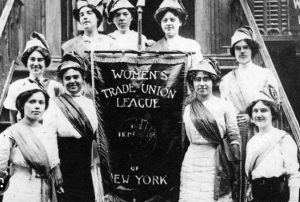
Fifty-one years later on March 8, 1908, women workers fought for their rights again, by marching through New York City’s Lower East Side to protest child labor and sweatshop working conditions.
Imagine the delight and pride of those courageous women, when in 1935, Bernice Judis signed on as General Manager of WNEW. And, in 2022, she received a Legends induction into the Radio Hall of Fame.
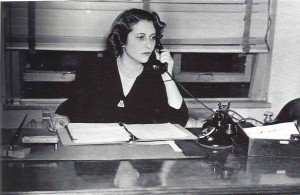
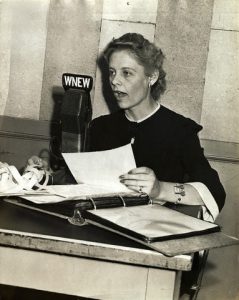
Or, in 1940, when top ranking woman tennis player, Alice Marble, signed a contract with WNEW for a series of weekend football forecasts.
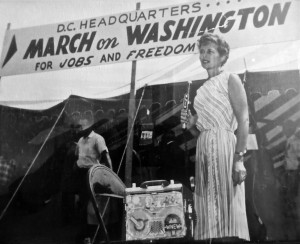
Followed by a host of courageous and strong women, epitomized by Marlene Sanders who in 1962 joined WNEW Radio as Assistant News Director.
And, of course, Peggy Stockton, veteran radio reporter who spent 12 years with WNEW covering New York’s City Hall.
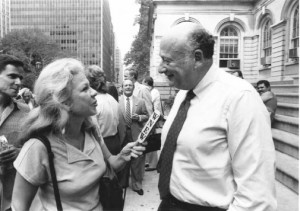
Honorable mention for some WNEW-FM women, who for a short time in 1966, held an all women DJ line up. Alison Steele, Nell Bassett, Arlene Kieta, Ann Clements, Margaret Draper, Peggy Cass, Rita Sands, Pam McKissick.
-MCP-
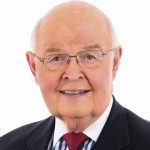
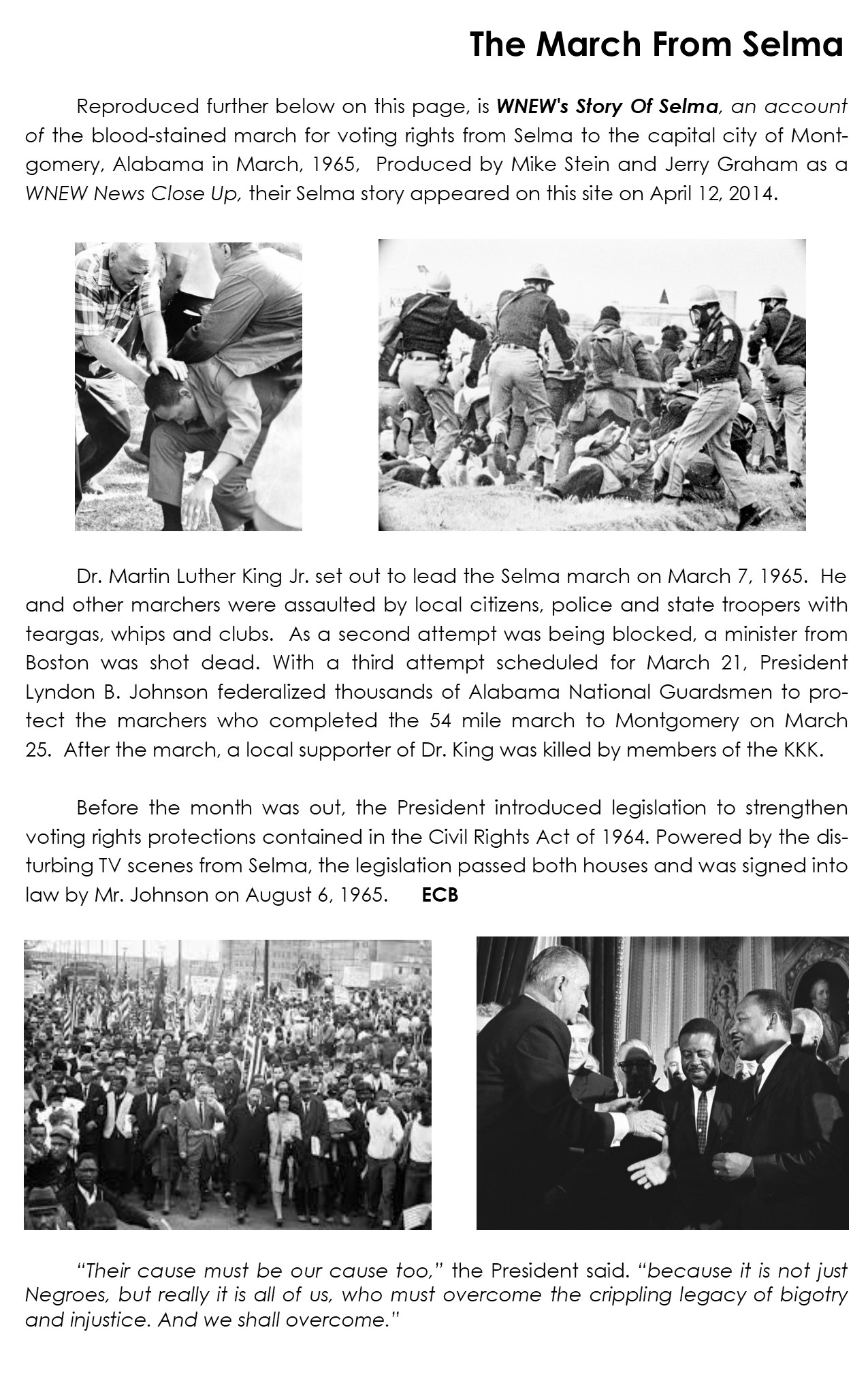
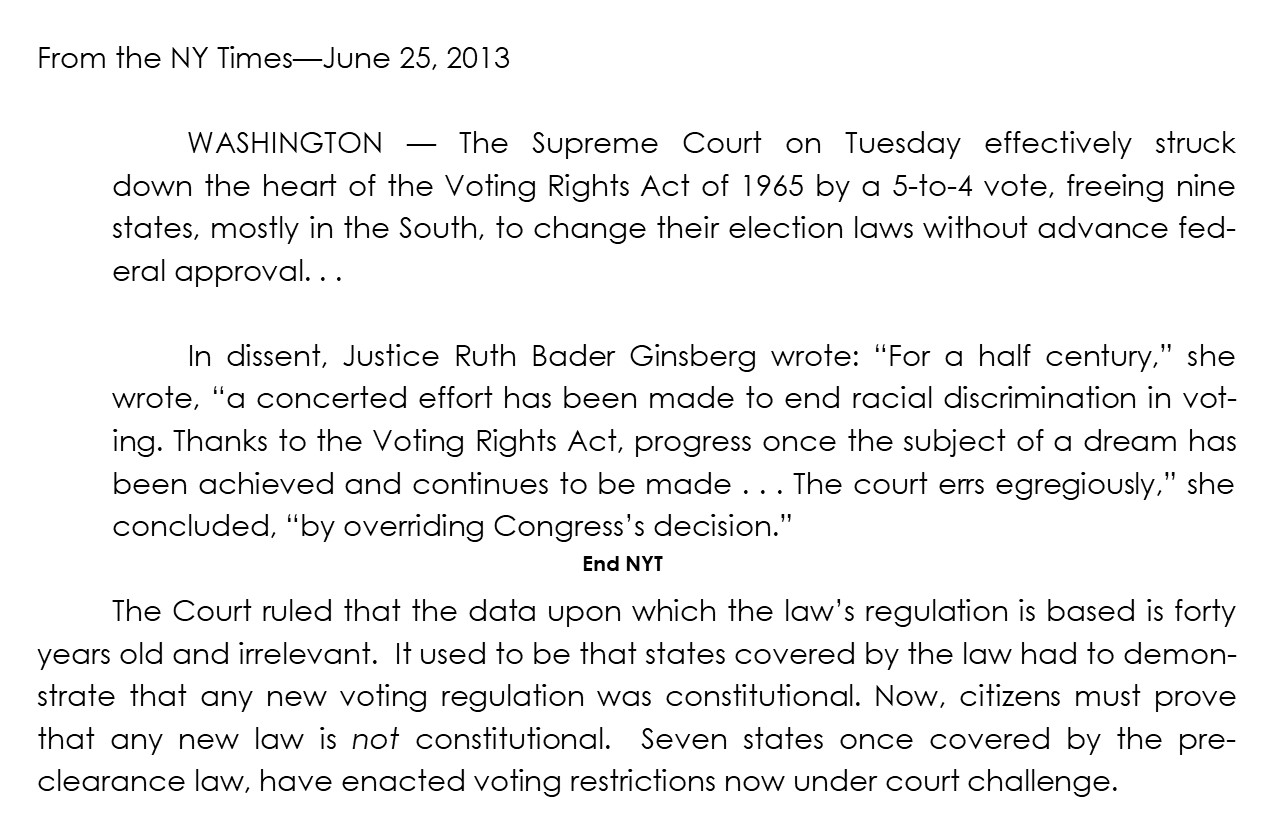

The WNEW Story of Selma/Sunday News Closeup CD can be found at: Smithsonian Folkways Records
NOTE: wnew1130.com has no financial or editorial relationship with Smithsonian Folkways Records.
Early style jingle. Tommy Dorsey esque late 1930s
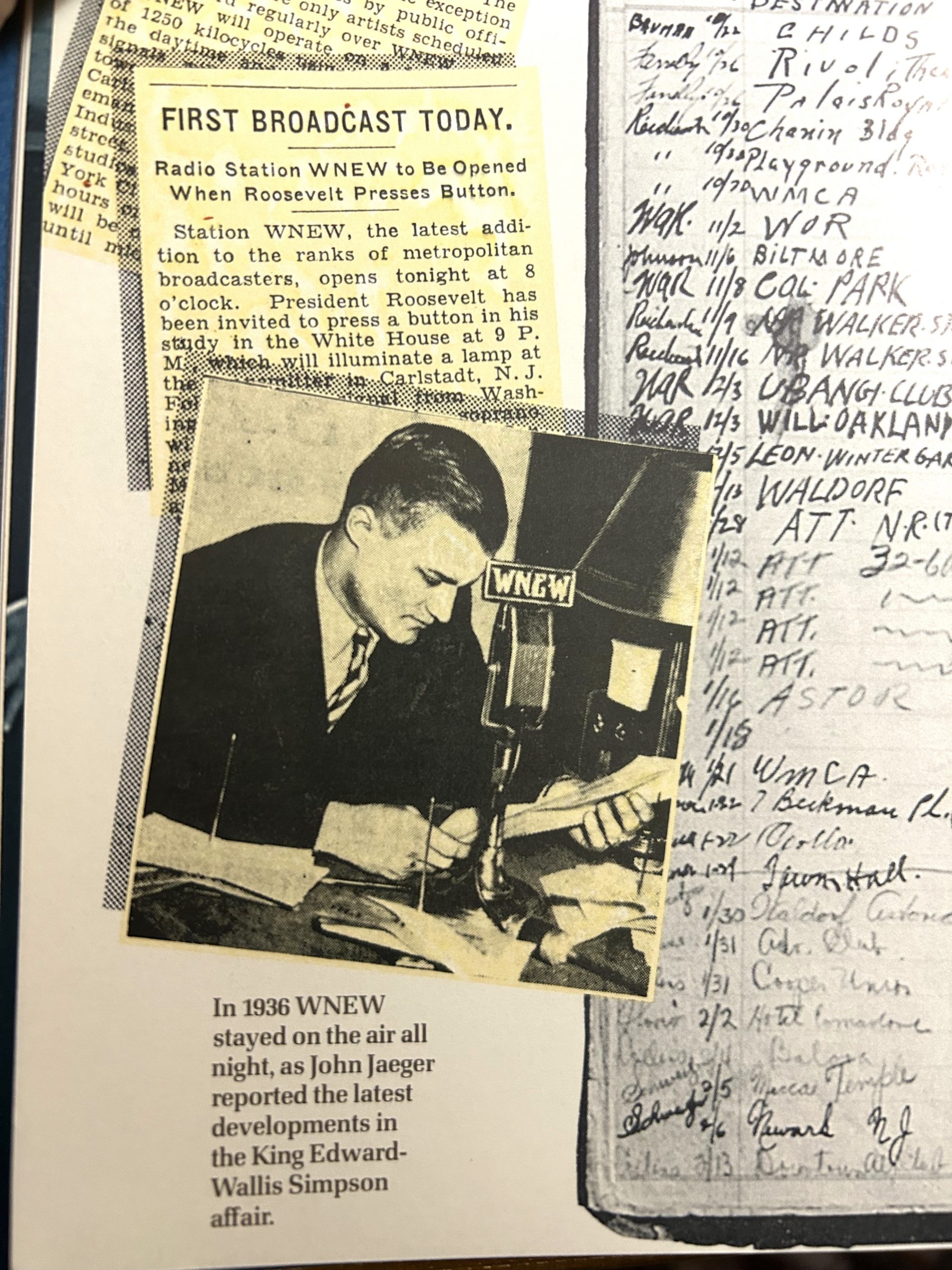
The preceding is an excerpt from the book “Where the Melody Lingers On WNEW 1934-1984,” Nightingale Gordon, NEW YORK.
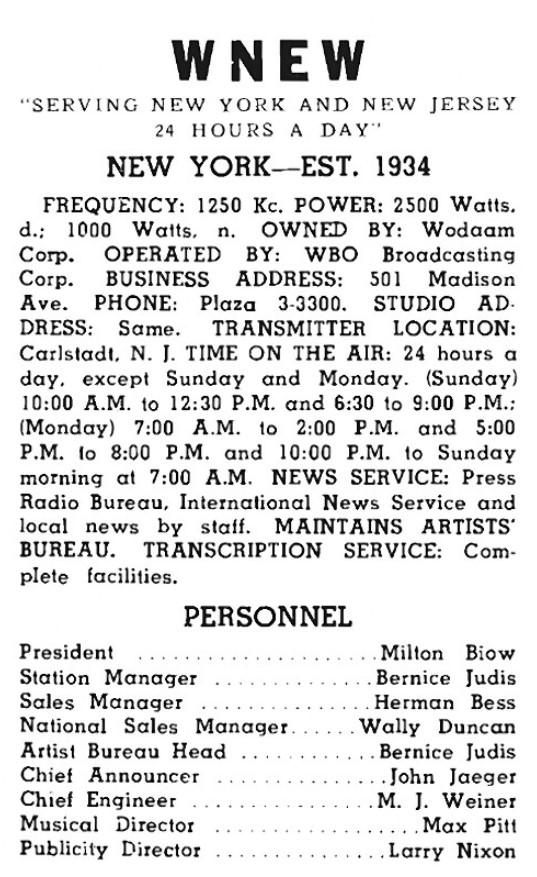
-MCP-
Ed Brown created the WNEW1130.com blog on April 27, 2009.
Since January 24, 2024, it has been my great honor to keep it running for him, as Editor, after his death in late 2023.
Ed’s first WNEW1130.com post that April day read,
There’s Only One . . . WNEW
There was a time when most radio stations, no matter how big, were local and part of neighborhood life. WNEW-AM, where the forms of modern radio were invented and made personal, existed within a community of broadcasters and listeners who shared in life’s events and now, share memories. This blog, exists to collect as many as possible of the bits and pieces of that history. What do you remember? What part of the story can you tell?
-End-
Not having Mr. Brown’s wealth of historical and WNEW knowledge, I do plan to draw from his earlier posts, his memories, and even from commentary archives from the 7PM radio time slot. These are gems of history, excellence in writing, and many-just plain enjoyable to read.
So, I ask as Ed did, “What do you remember? What part of the story can you tell?”
I am excited to receive your contributions.
Audio PlayerWe’ve / I’ve got quite a few friends.
A huge thank you to Bill P, Jean, Edw M, Karen, Jeff, Al, Alan, Andy, Bill D, Bob, Mike, and their families, for the many different ways in which you support me, and this site.
Thank you so very much for helping to keep WNEW1130.com alive and well.
![]()
-End-

